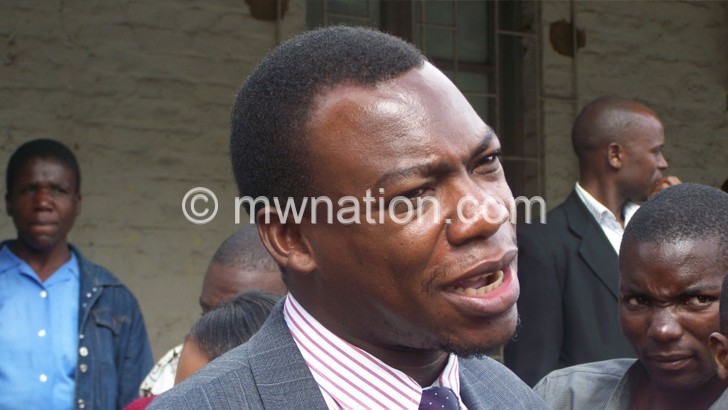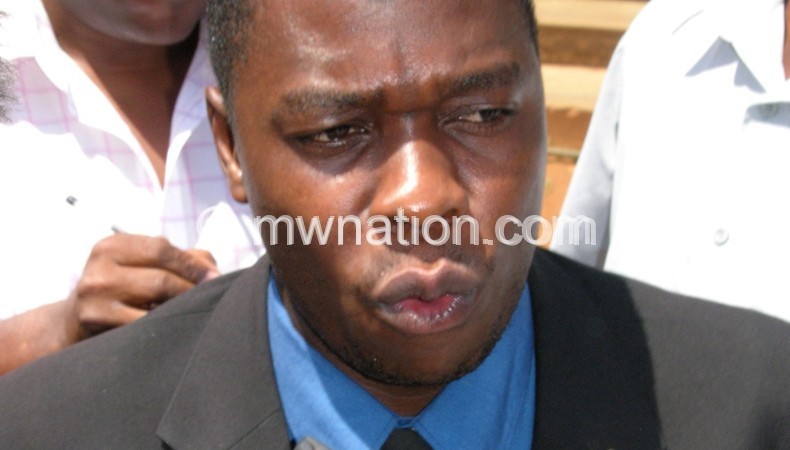back to square one on electoral reforms
The record of resorting to court for perceived electoral fraud was played in 2014 and is now running, but could be replayed in 2024 in the absence of electoral reforms, Nation on Sunday understands.
Parliament rejected proposed electoral reforms, including the 50+1 system of electing the president, which anticipated the challenges that the May 21 Tripartite Elections faced, leaving the Malawi Electoral Commission (MEC) with no choice but to stick to the polarising First-Past-the Post (FPTP).

The recent election of Peter Mutharika as the sixth President of Malawi has attracted perception, especially from the opposition, that the ‘election were rigged’ in his favour.
Weighing in on the need for the reforms, legal experts described the current state of the law, which allows the electoral body to announce results within eight days as well as having the President-elect sworn in immediately after announcement, as awkward adding that it undermined the credibility of elections.

The Special Law Commission had proposed that a President–elect be sworn–in after 30 days, something that was reduced to 15 days in the rejected Electoral Reforms Bill.
In an interview with Nation on Sunday, law experts blame the current electoral dispute on failure to enact the Electoral Reforms Bill.
Dean of the faculty of law at the University of Malawi’s Chancellor College, Sunduzwayo Madise, faulted the provision, which compels MEC to release results within eight days—even when there are unresolved complaints—as undemocratic.
Asked if the court had any discretion to extend the eight–day period in case of evidence that the election results were tampered with, he argued that it is within the parameters of the court to interpret the law in the interest of justice.
“The courts have a duty to promote justice, good governance and the rule of law. Therefore, since the law places the responsibility to the High Court to arbitrate on electoral dispute, one would say where there is compelling evidence of tampering with results, the electoral commission should be allowed to clear the mess before releasing results.
“It will be illogical to insist on releasing the compromised results simply because the law says so. I guess that was not the spirit of the framers of this piece of legislation,” argued Madise.
In his submission in a National Initiative for Civic Education (Nice) publication analysing 2014 Tripartite Elections, constitutional law expert Edge Kanyongolo also faulted the current position of the law, saying it threatens constitutional democracy.
“In this case, the imperative of the timely conclusion of the electoral process reflected in the eight-day deadline trumped the equally important goal of not only electoral law but also the Constitution itself, namely, the right of every person to be afforded an effective remedy when his or her rights are violated or threatened,” he said.
Kanyongolo observed that the above scenario underscores the importance of ensuring that the law strikes the right balance between the speedy resolution of disputes and the provision of adequate time for the proper resolution of the disputes and the granting of effective remedies.
This is a second time in succession where MEC has announced election results amid some unresolved issues.
In 2014, MEC was also in the spotlight after opposition Malawi Congress Party (MCP) went to court asking for an extension of the legally stipulated eight–day period to allow for a recount of votes, which another opposition party, now ruling, the Democratic Progressive Party (DPP) opposed.
In his midnight ruling on May 30 2014, Justice Kenyatta Nyirenda said neither the court nor MEC had the mandate to extend the period within which to announce results, stressing on the need to follow the law.
“My duty as a judge is to interpret and apply the law, not to change it to meet my idea of what justice requires,” reads part of the ruling.
Even when MEC had publicly admitted that the election results were marred by irregularities, it went ahead to announce results based on the court’s direction.
Similarly, in the just-ended election, Justice Charles Mkandawire ruled that MEC was at liberty to announce results within eight days despite outstanding issues.
Private practice lawyer Justin Dzonzi said the law in question was an enemy of democracy and the rule of law which insists on credible, free and fair elections. He said while the law states so, the discretion lies with the court to make a determination which promotes good governance.
But Malawi Law Society (MLS) backs both MEC and the courts, saying they have acted within the law.
MLS honorary Secretary Martha Kaukonde said if the law has some gaps, it is up to Parliament to change it and not the courts or MEC.
Results of this year’s presidential election polls were announced on Monday and the swearing-in ceremony took place the following day amid unresolved court battles, a development which could have been avoided were the electoral reforms taken on board.
The electoral reforms proposed creation of a transition team comprising top government officials to run the affairs of the State during the 30-day period.
This was to avoid the abuse of incumbency—during the period MEC and the courts are dealing with electoral disputes.
In an interview, the United Democratic Front (UDF) which was DPP’s political bedfellow in the previous Parliament, says it will go back to the drawing board and find a ‘new’ strategy to push for electoral reforms that were rejected last time.
Asked if they regret to have been working with the DPP which was in the forefront of shooting down the reforms, UDF diehard and long-serving legislator Lilian Patel said they have no regrets “whatever decisions we made were appropriate for that time. But moving forward we will have to sit down and see the way forward. I cannot make a decision on my own”.
People’s Party (PP) parliamentarian Noah Chimpeni said their position has not changed on electoral reforms.
He said Parliament, particularly the ruling party, is to blame on the failed electoral bills.
UTM, which so far has four parliamentary seats among the 192 contested for, also pledged support towards amendment to the electoral laws, according to the party’s secretary general Patricia Kaliati.
Commenting on the development, public policy analyst Rafik Hajat said the rejection of electoral bills was a lost opportunity, but political parties can use the 2019 elections to do something.
He said other players outside Parliament, such as lobby groups, can also start campaigning for enactment of these bills as soon as possible. Hajat said the opposition has also the independent bloc to count on to push for the reforms.
The configuration in the next Parliament has DPP with the largest number of legislators standing at 63, MCP 55, independents 55. Both DPP and MCP are likely to gain from the independents.
But political analyst Nandini Patel, who has authored a number of articles on elections in Malawi, says the enactment of political reforms is a political will issue, hence there is need for more pressure on the Executive to see the need to enact these laws.
“We can have 50+1, but if MEC is not independent, there is a problem. We need to make MEC financially independent so that the holding of elections is not so much dependent on the will of the Executive, which is an interested party. We also need to have commissioners appointed through interviews conducted by an independent body – not appointed by the President in consultation with political parties,” she suggested.





